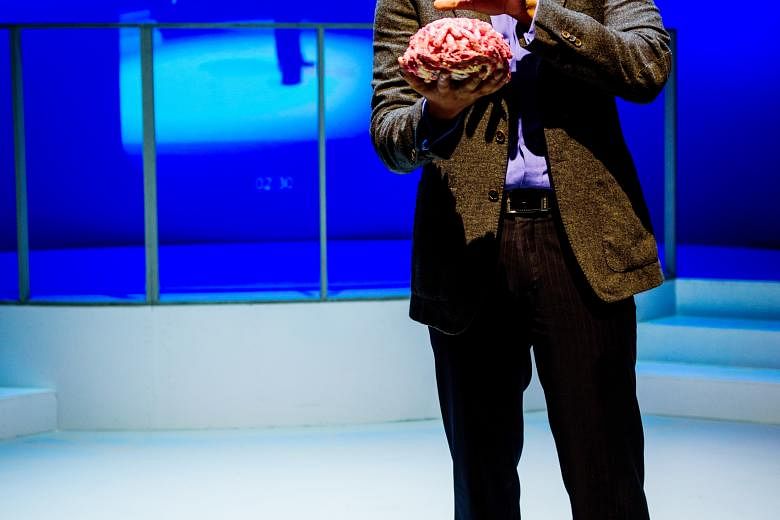Boy meets girl during a drug trial. Sure, they fall in love, but is it love or a result of consuming the drugs?
The Effect, a play by British playwright Lucy Prebble, asks a question that is ultimately existential - are one's feelings real or chemical?
Would the answer differ if the effects of taking an antidepressant happen to be the same as the signs that one is falling in love (elevated heart rate, increased perspiration and reduced appetite)?
This third outing by young company Couch Theatre tackles a complex script that deals with love, mental health and the pharmaceutical industry.
Although the cast of four, led by first-time director Ziyad Bagharib, work hard to deliver the right energy needed to execute their layered characters, sadly, their efforts ultimately fall short and the performances feel under-rehearsed.
-
REVIEW/THEATRE
-
THE EFFECT
Couch Theatre
Drama Centre Black Box
Tuesday
The chemistry between the two leads, Tristan and Connie (played by Johnson Chong and Krissy Jesudason) starts out shaky when they meet as strangers, although it grows more believable as the play progresses and the initially resistant Connie falls for the free-spirited Tristan.
-
BOOK IT / LUCY PREBBLE'S THE EFFECT
-
WHERE: Drama Centre Black Box
WHEN: Today and tomorrow, 8pm; Saturday, 3 and 8pm; and Sunday, 3pm
ADMISSION: $35 (Go to www.sistic.com.sg or call 6348-5555)
In contrast, actors Prem John (as Dr Toby) and Chio Su Ping (as Dr James) flesh out their parallel relationship more competently, all skittish energy and awkward pauses that hint at their compelling backstory, while trying to maintain an employer-employee distance.
However, there were many instances of flubbed lines and missed cues that made it hard to fully get into the headspace of the play and the emotional depths that the relationships between the characters warranted.
The energy and pacing of the 21/2-hour play was patchy, particularly in its saggy second half.
This was made worse by lighting designer Jim Chan's decision to make abrupt fade-to-black lighting transitions, which did not allow some scenes to breathe adequately.
There were, however, moments that worked.
The audience ached together with Connie when she chafes against the oppressive atmosphere of the clinical trial centre, which keeps her apart from Tristan.
At the same time, the experiment also chips away at the initially steely Dr James, who starts to question the trial as well.
"You can't police they way we feel," exclaims an exasperated Connie.
"That's exactly my role," retorts Chio's Dr James, in a whisper of a voice that speaks of complicity.
Then, there is John's portrayal of Dr Toby, a charismatic psychiatrist who straddles the fine line between genuinely wanting to help people with mental illness and just wanting to peddle the illusion of a cure.
In particular, his delivery of Dr Toby's speech about how he went into psychiatry because of his late father, (a nod to Freud) was, by turns, funny and moving.
However, with only four characters and one primary setting, the play demanded a tautness that was unfortunately lacking, bringing it to a conclusion that was ultimately deflating.
In clinical trial parlance, this pilot experiment was promising, but requires further rigorous testing before the drugs are ready to be rolled out to the market.


